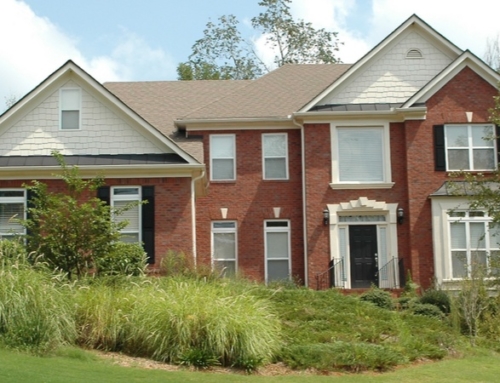On Chicago’s lakefront, an older woman lives in a pre-war vintage co-op building that doesn’t have parking.
She rents a parking space for her car from a building a few doors away.
When she moved into the building, some 30 years ago, parking wasn’t that big a deal. There were spaces on the street, and plenty of spaces to be had for not that much cash each month.
Now that her home has sat on the market for a year, she realizes that times have changed. Residents in her building not only have one car, but two or three. Not having a deeded parking space to go along with her unit has become a fatal flaw.
A fatal flaw is a problem that the seller might not even recognize as an issue. Your home could be completely remodeled, but if backs up to a train line, overlooks a highway or what would be considered a busy street in the neighborhood, is across from a school or doesn’t have parking, that issue could turn off prospective buyers and kill deals.
While you may not be able to “fix” a fatal flaw, you may be able to solve the problem to the buyer’s satisfaction.
For a building that doesn’t have parking, one option would be to list the unit as having a paid parking space for six months, a year, or even two years. Even if you pay $200 per month for that parking space, you’re talking about a concession worth $1,200 per year. If you had to lower the price to compensate for the fatal flaw, you’d probably have to lower it a lot more than that.
By advertising that you have a parking spot all ready for the buyer’s car, you’re reassuring the buyer that he won’t be out on a cold winter’s night, hunting for street parking for hours on end.
Unfortunately, sometimes fatal flaws are tougher to resolve. If you overlook a busy street, you can’t move your house or shut down the street. You could replace all of your windows with triple-paned special noise-reduction glass, but you’d spend a ridiculous amount of money installing the windows and then repairing and repainting your home.
If your home is receiving a lot of lookers, but no buyers, ask your agent to call back some of the other agents and buyers to get feedback. Your fatal flaw may be something that has escaped even your agent’s attention.
Once your agent has the feedback, the two of you should talk about ways to overcome the flaw.
If several buyers are interested enough in your property to have visited multiple times, but are put off by, say, a busy street, ask your broker to do a night-time open house specifically for them. If the street quiets down at night, and they’re there to listen to how quiet it actually is, it could overcome their misconceptions and tone down their concerns enough for them to make an offer.
If there doesn’t seem to be an easy solution to the problem, ask your agent to go back to her office and raise the question at her weekly meeting. It’s possible that another agent in the firm will have dealt successfully with the same issue in a past sale.
When you’ve exhausted all of these options, you’re left with two final choices: Gimmicks and giveaways, and lowering the price.
A gimmick is something you do to raise awareness of your property. When the market slows down in your neighborhood, some sellers will give away free tickets to local theatre or the symphony, or a trip to DisneyWorld. Sellers have been known to give away cars, everything from a used Mercedes to a brand new car of the buyer’s choice (up to a certain dollar amount). They also give away cash bonuses to the buyer and buyer’s agent.
While offering a gimmick doesn’t necessarily overcome the fatal flaw, it should attract more buyers to your door. And, as you increase the traffic, someone should make an offer.
Provided, that is, that your property is priced correctly. Without seeing the fatal flaw, it’s possible that you’ve overpriced your home for the condition that buyers perceive it is in.
You should be able to lower your price to a point that someone will say, “I’ll solve the parking problem myself. This is too good a deal to pass up.”
May 3, 2005.






Leave A Comment